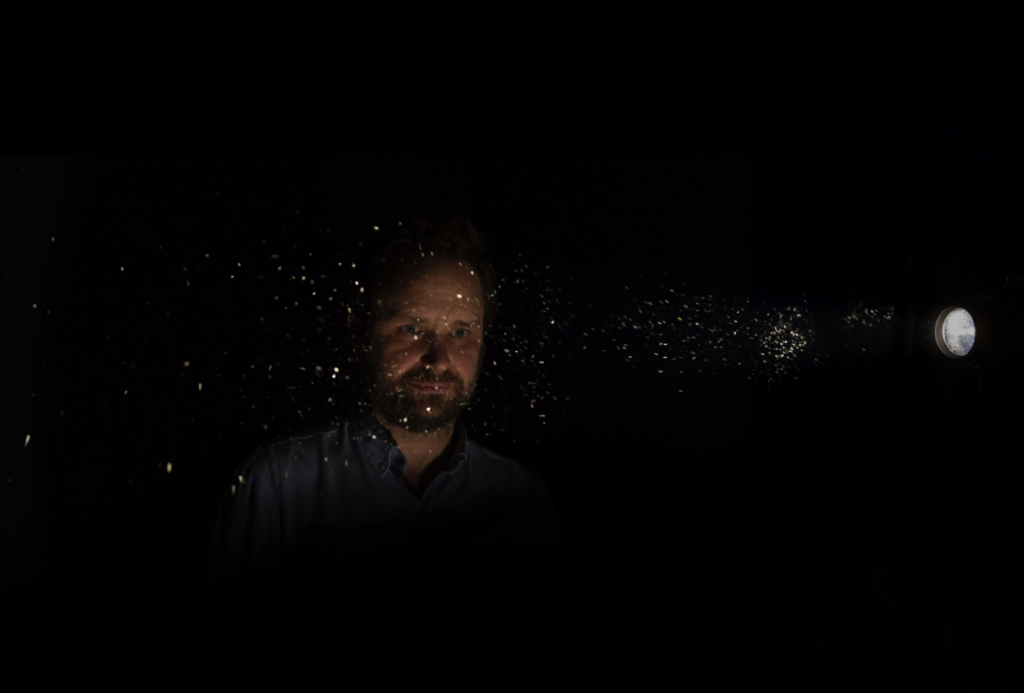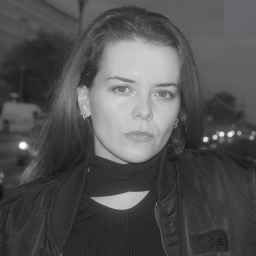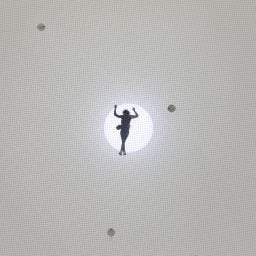For Argentine artist Tomás Saraceno, air is not light matter. It carries symbolic and sociological weight, and is a major consideration in the suspended interactive web installations and landscapes he builds (which are, in some works, created and occupied by living spiders).
Now, the artist is embarking on a new project with a new gallery. “We Do Not All Breathe the Same Air”—which will open on September 17 at Neugerriemschneider in Berlin and is spurred by the pandemic and the climate crisis—is dedicated to a more intimate aspect of air: breath.
“We know exactly what the cure to [bad air quality] is,” Saraceno told Artnet News. “We know that if we stop burning fossil fuels, mortality rates will drop. Why were we able to respond so actively to the immediacy of the coronavirus, but can do nothing against a collective threat that is three times more deadly?”
The show considers the inequalities inherent in the way oxygen flows around the earth: different parts of the world, namely the Global South, are experiencing the pandemic and the climate crisis in a different and more extreme way compared to many Western nations. A 2018 work, Printed Matter(s), uses ink the artist made from black carbon pollution extracted from Mumbai’s air. His beloved spiderwebs will also feature in the show, but their webs are laced with pollution, changing their color. Another installation will render the air in the room, and all its particulate matter, visible.
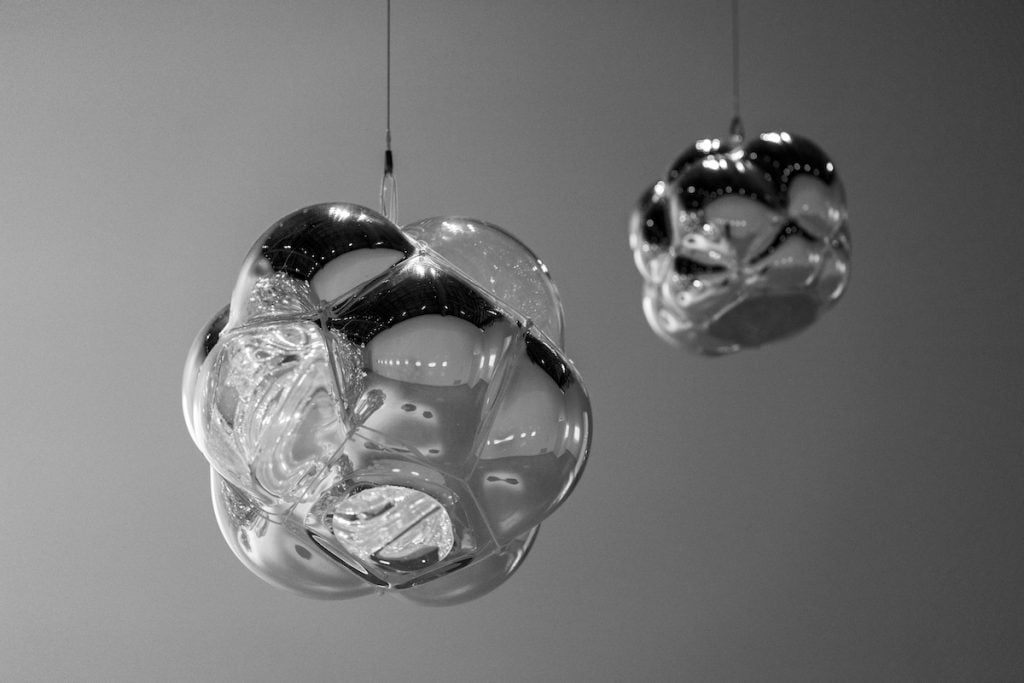
Tomás Saraceno, Aeolus 36,184 and Aeolus 8.79, both 2019. Courtesy the artist and neugerriemschneider, Berlin © Tomás Saraceno
In keeping with Saraceno’s ongoing environmental concerns, the gallery will use 100 percent renewable energy, and shift its hours to correspond with darkening days in October, so that less lighting will be needed during opening times.
The exhibition is even more pertinent given the landmark report published this week, approved by 234 scientists from more than 60 nations, suggesting that the climate is in a more dire state than previously thought.
“The capitalist, colonial, and patriarchal structures many of us are entrenched in throw up huge roadblocks to normalized problems, including climate change,” Saraceno said. “What could happen if the climate crisis was treated with the same sense of urgency as the pandemic?”
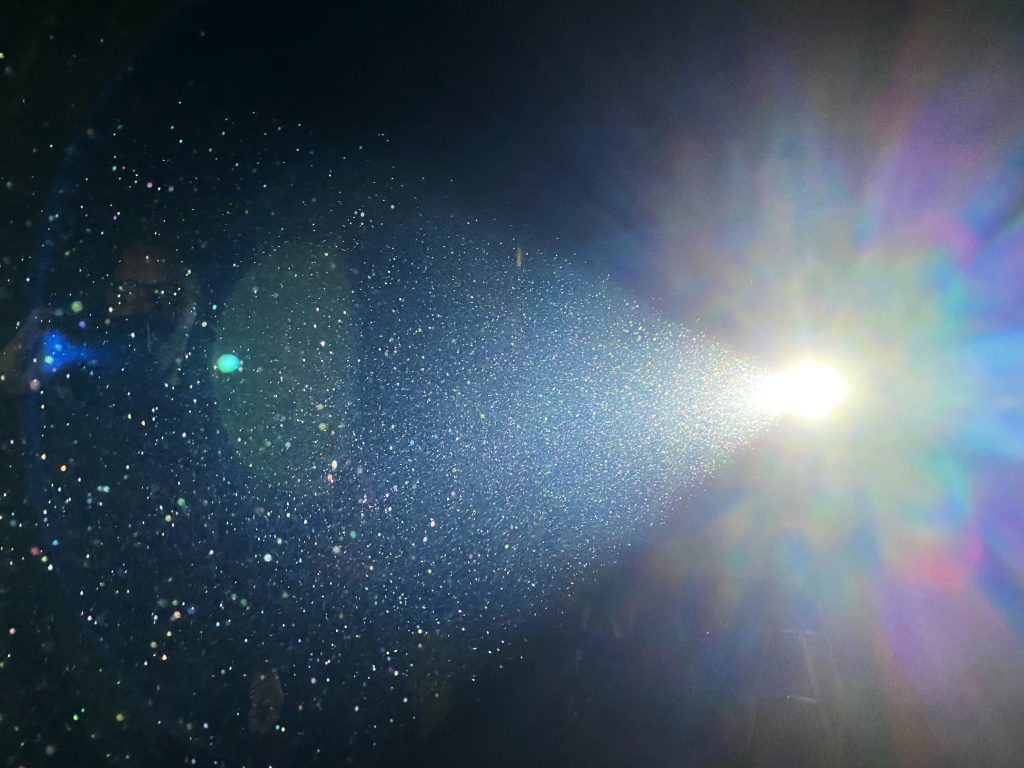
Tomás Saraceno, Particular Matter(s) (2021). Courtesy the artist and neugerriemschneider, Berlin.
The artist has been working to make his Berlin studio, a brick-built former factory, more sustainable by regenerating its grounds into a garden that can feed his employees. He is also collecting rainwater from the roof and installing solar panels come September. The studio will also shift its working hours to accommodate darker winter days.
“This last year has refined my approach, and challenged me towards new aspirations,” the artist said. “I have decided that a shift in my environment and reconnection with my first supporters will bring a positive influence to my work, though I remain grateful to fruitful past relationships and stay close with many artists there.” The Spanish artist and his longtime dealer in Berlin, Esther Schipper, decided mutually to part on amicable terms in late 2019. “I‘m happy that Tomás and neugerriemschneider are now working together. I wish them all the best!” said Schipper.
Tim Neuger of Neugerriemschneider, which will represent the artist alongside Andersen’s – Andersen Contemporary in Copenhagen and Tanya Bonakdar in New York, described Saraceno as “an artist of radical imagination, visionary creativity, and extraordinary insight.”
“Working with us, Saraceno is amongst many friends and peers, and having known him well since the beginning of his career, we couldn’t be happier for this opportunity to expand our relationship, and step forward together toward new horizons,” Neuger added.
After the Berlin exhibition, Saraceno will continue on a similar research path for an upcoming exhibition at the Shed in New York planned for 2022.
“I was very much inspired and moved by the research of [U.S. author and medical ethicist] Harriet A. Washington on the uneven distribution of pollution along geopolitical and racial lines,” he said. “What is floating in the air today? What are we breathing in? And who has the capacity and possibility to breathe at all? These are important questions we can’t stop asking ourselves in the age of the anthropocene.”
